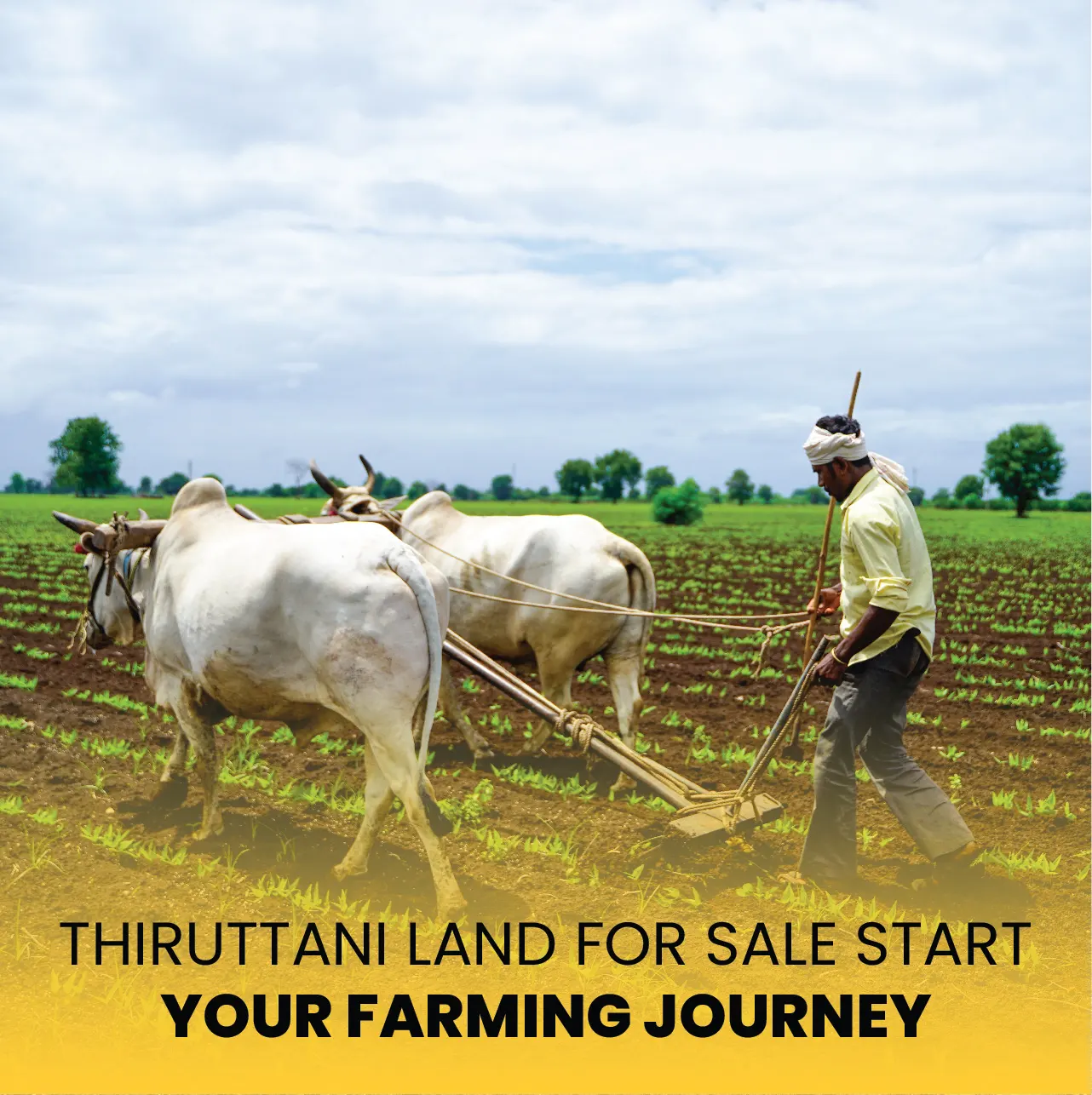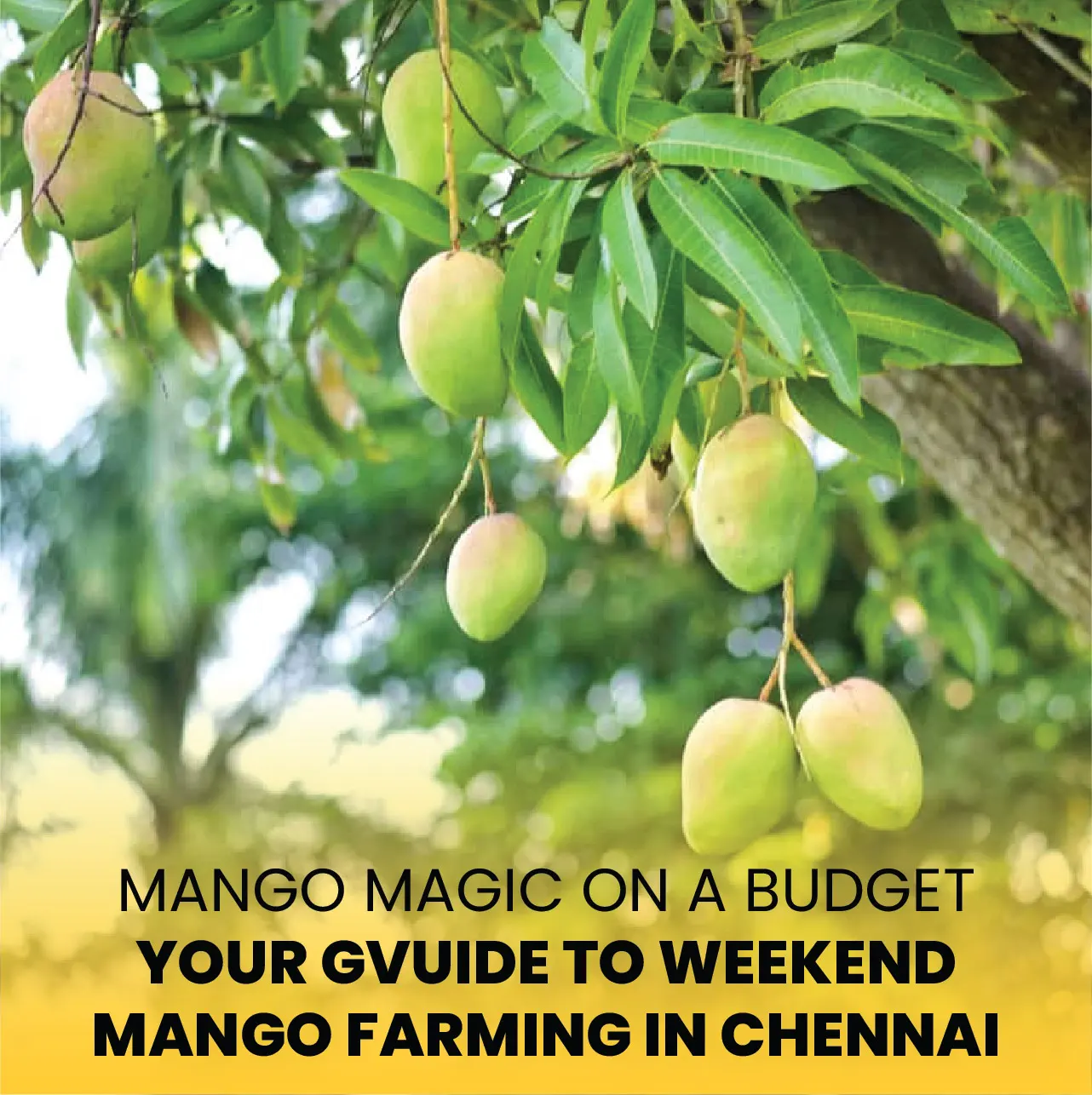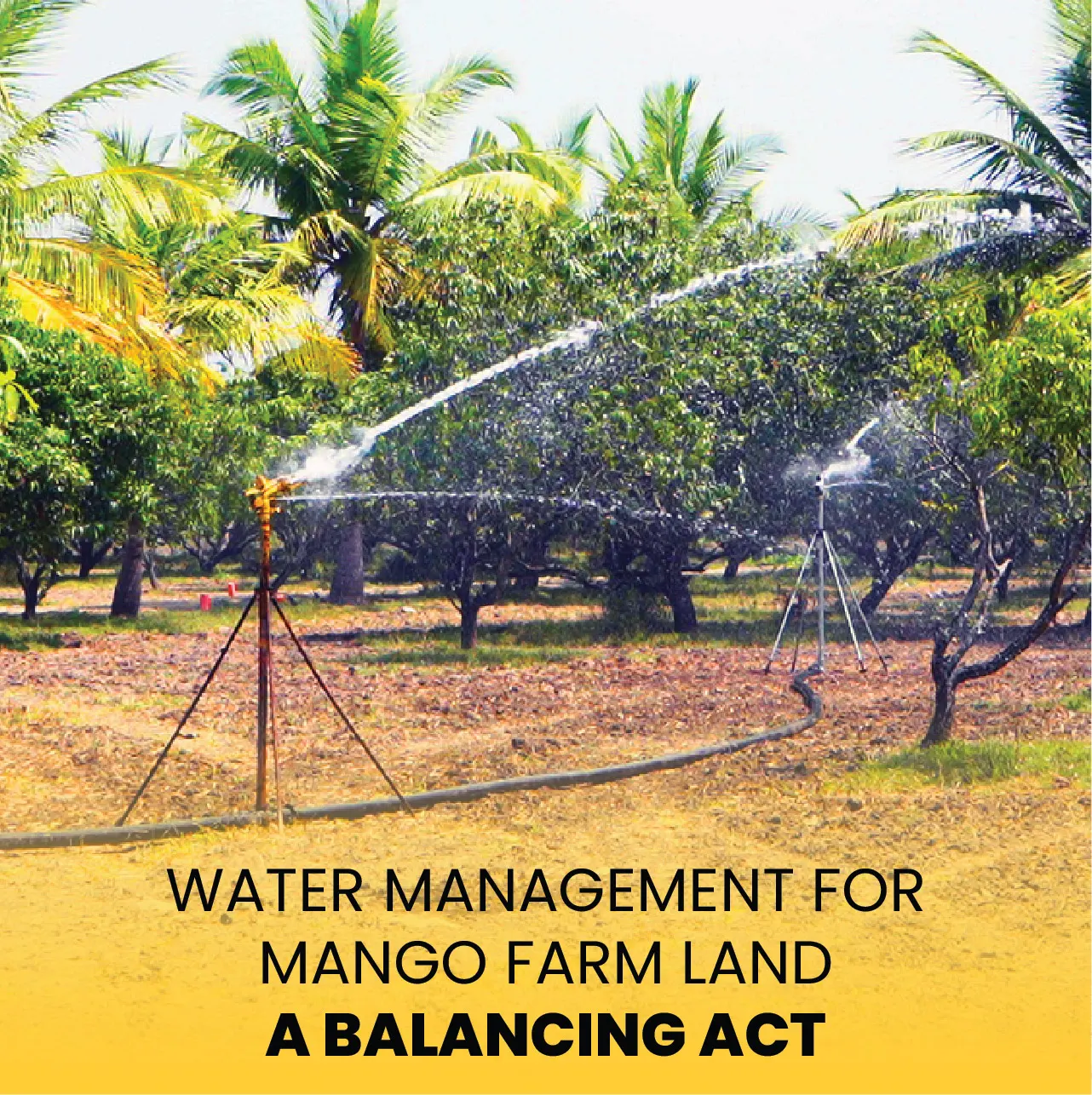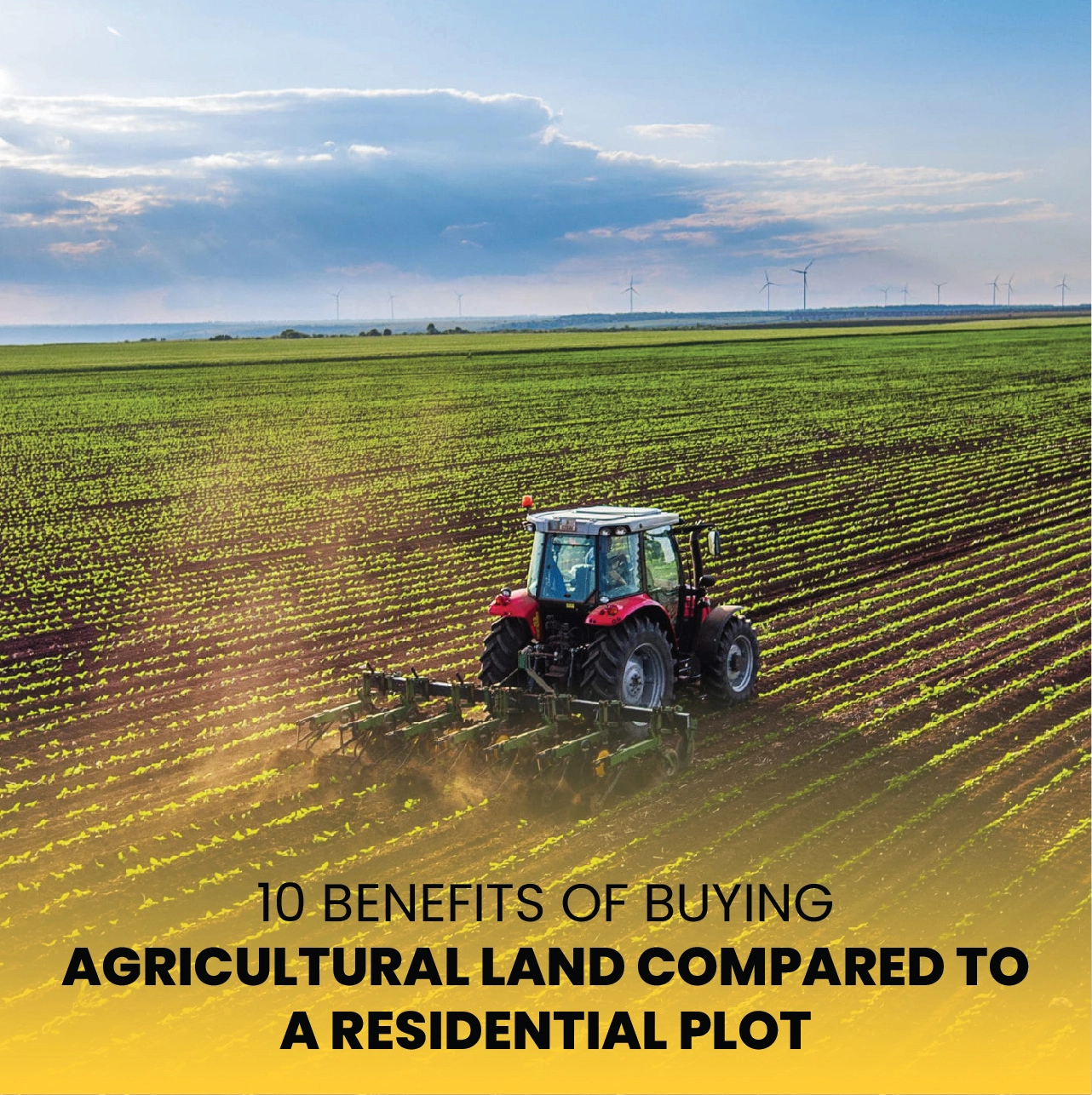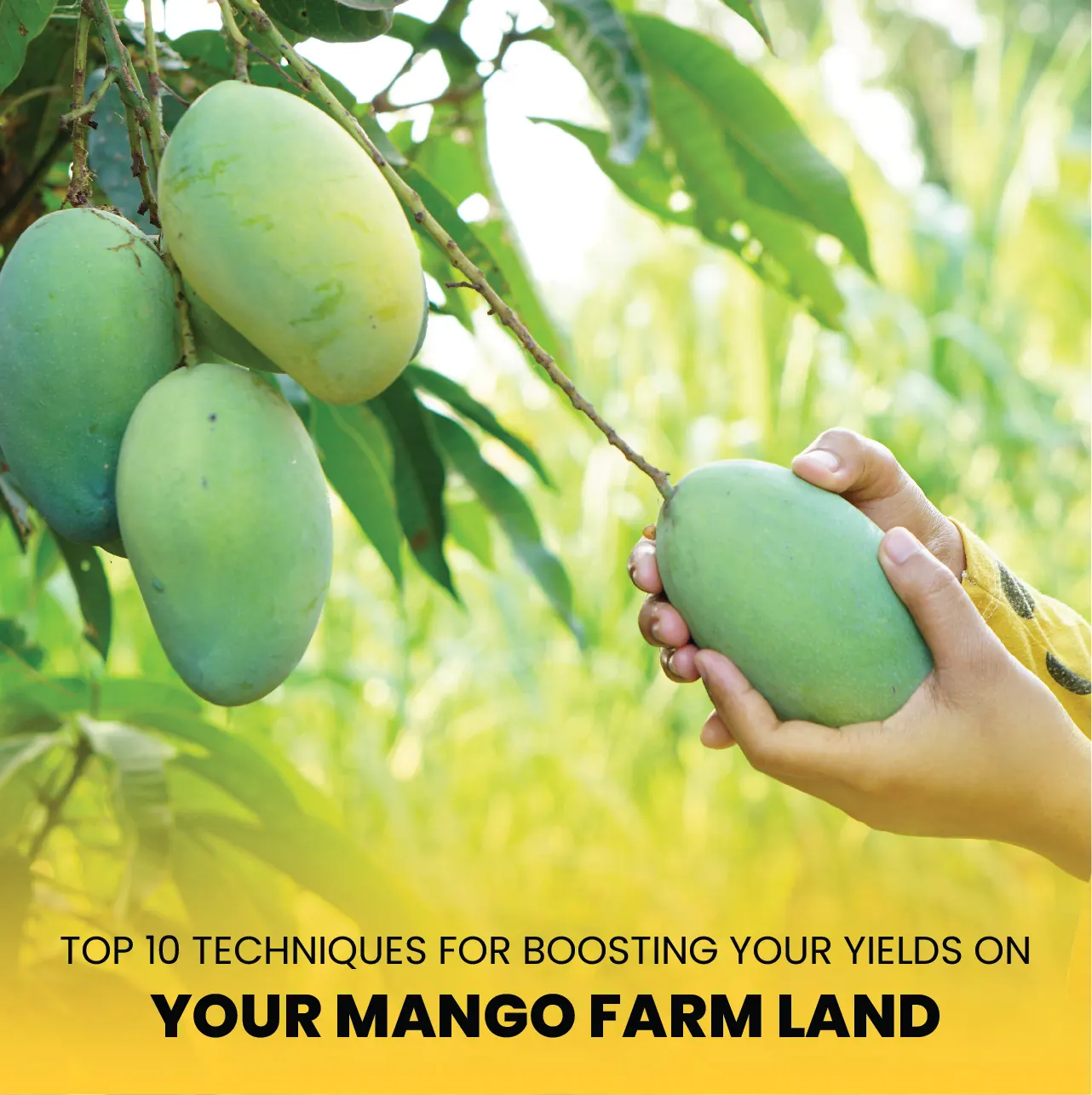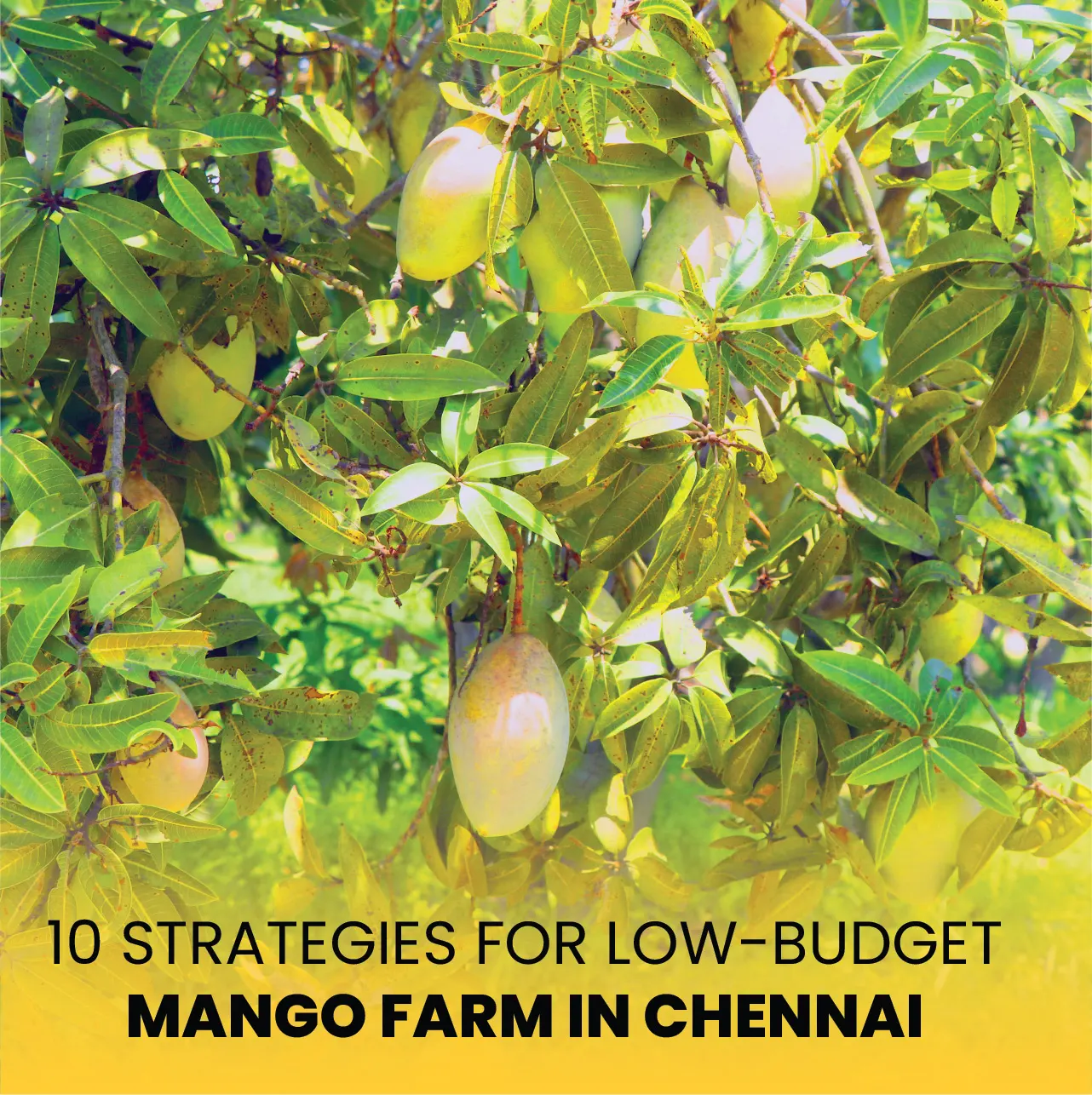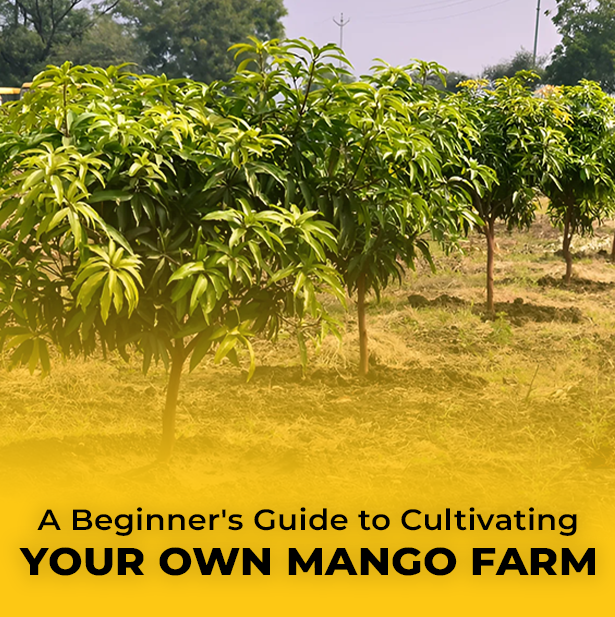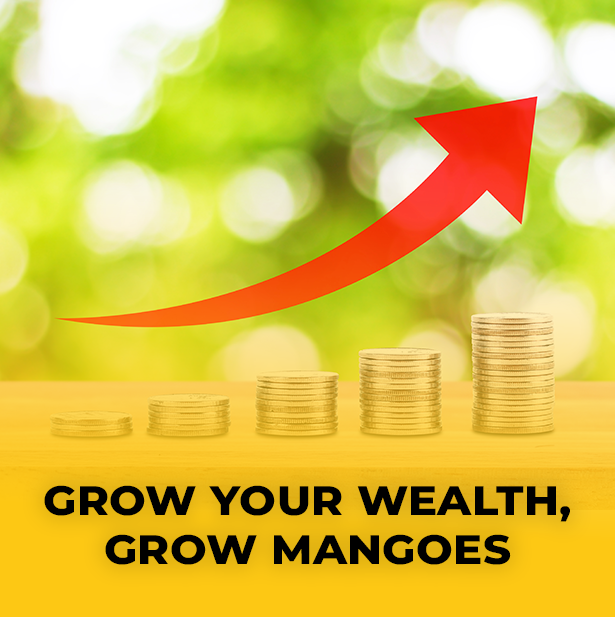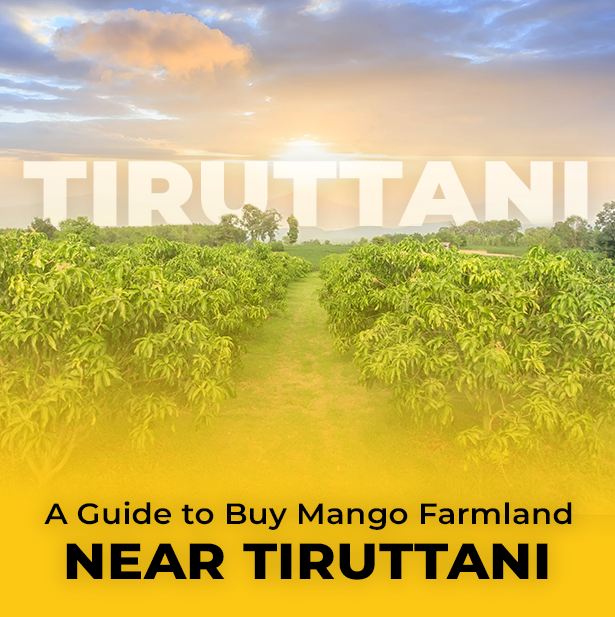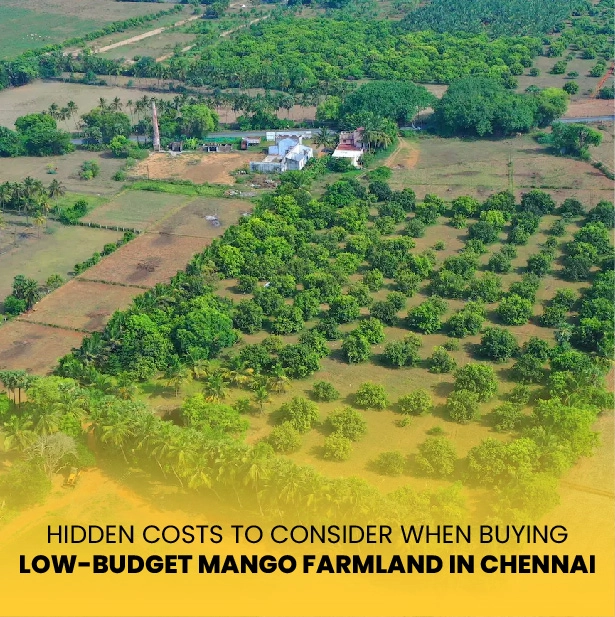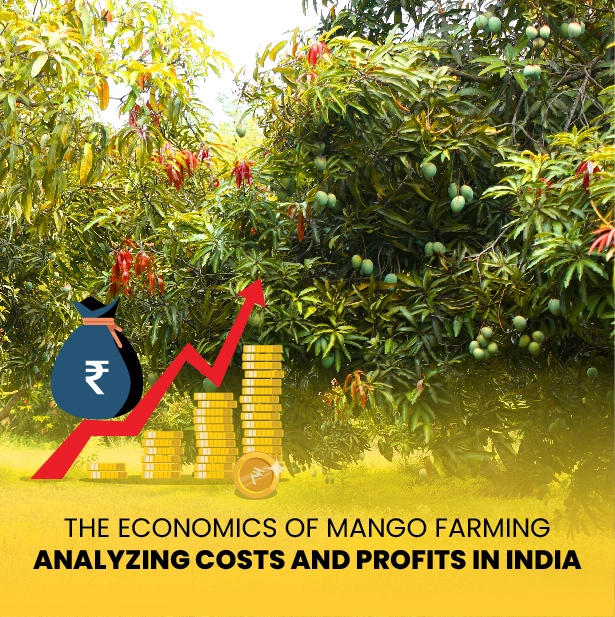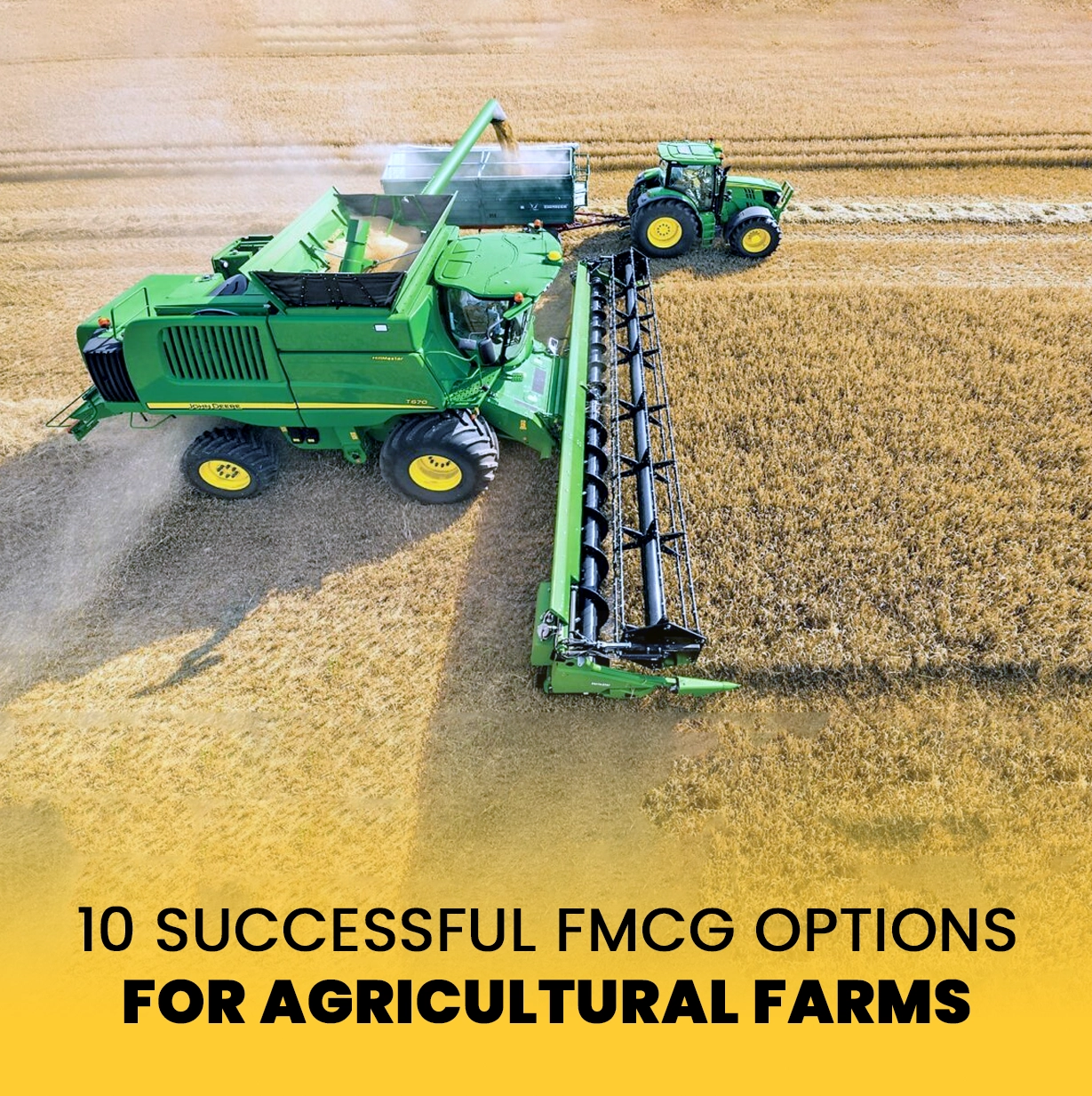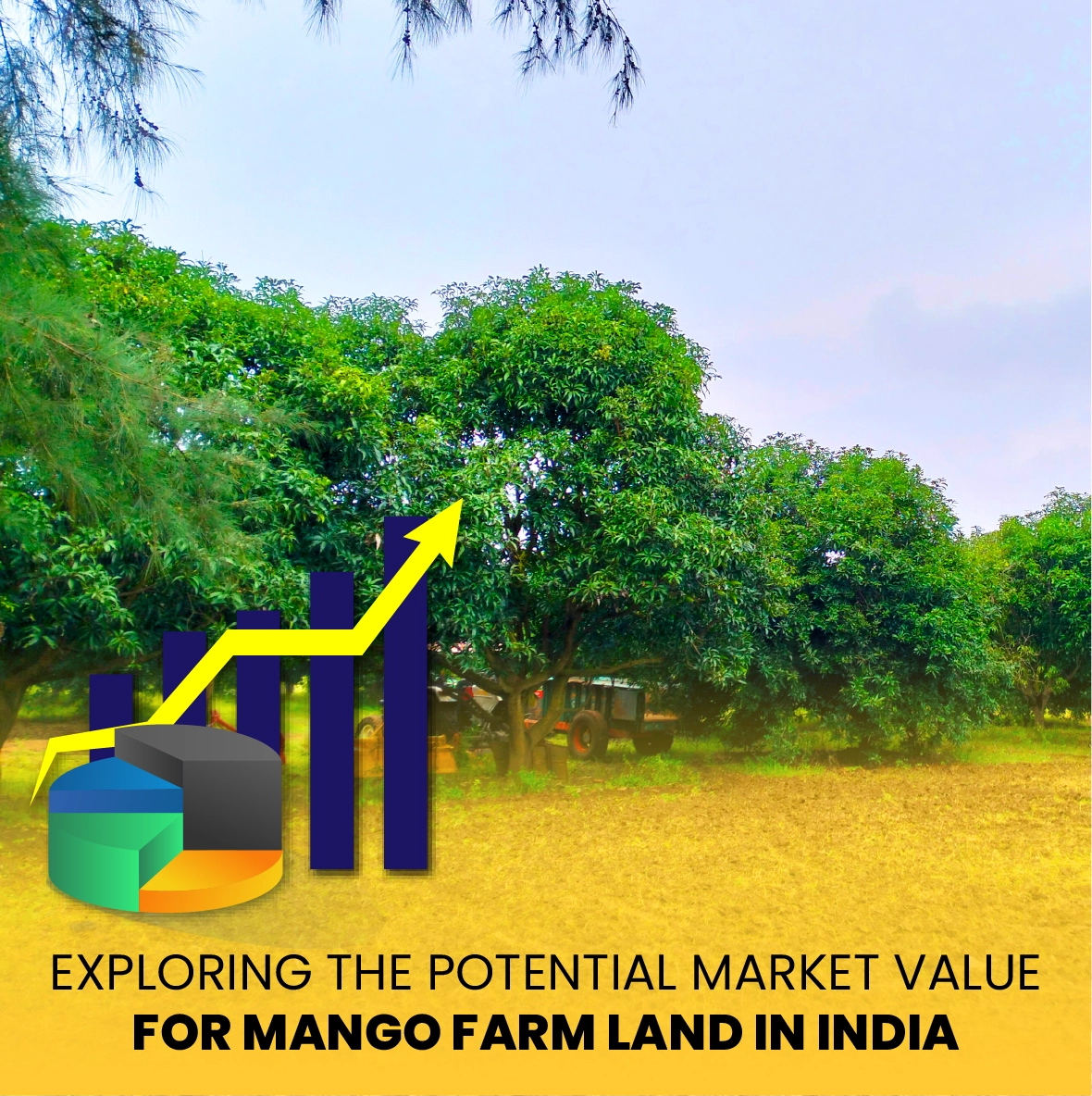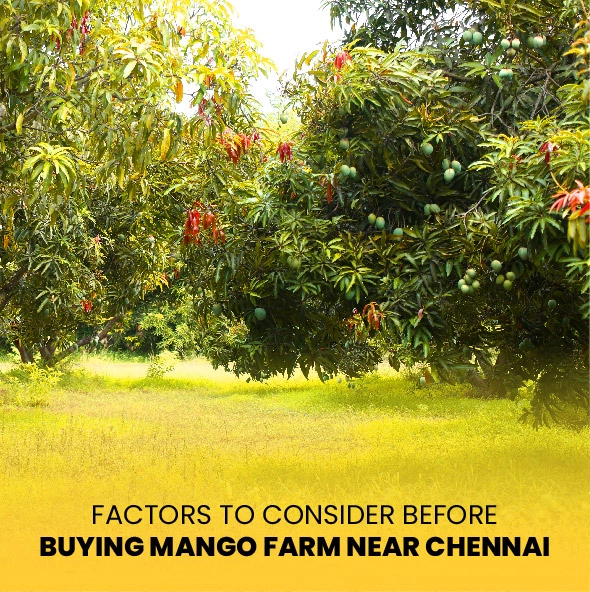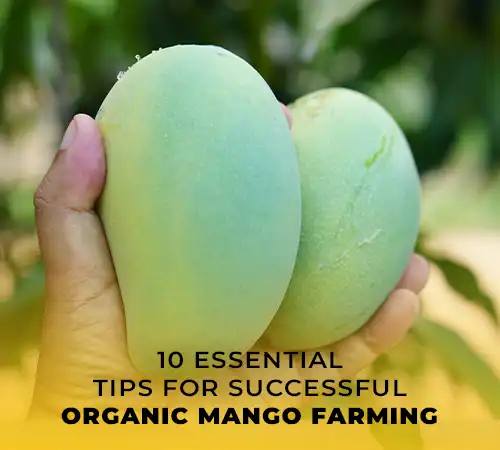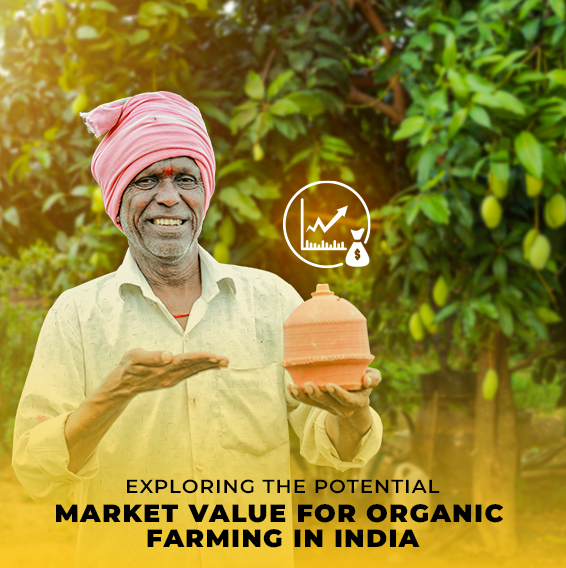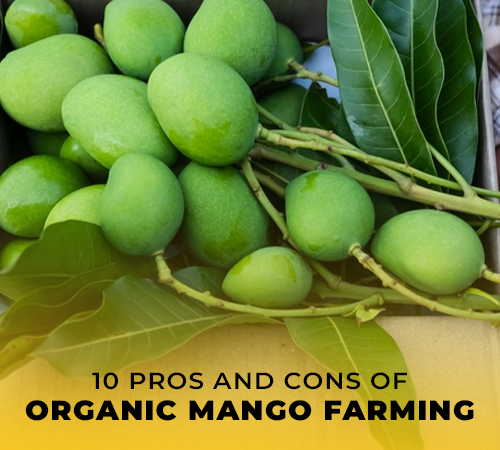In recent years, the concept of organic farming has gained significant traction worldwide. As consumers become increasingly health-conscious and environmentally aware, the demand for organic produce continues to rise. Among the various organic crops, mango farming stands out as a lucrative and sustainable option, offering numerous benefits to both farmers and the environment. In this comprehensive guide, we delve into the intricacies of organic farming, mainly focusing on mango cultivation and exploring its benefits, investment opportunities, returns, effects on nature, and more.
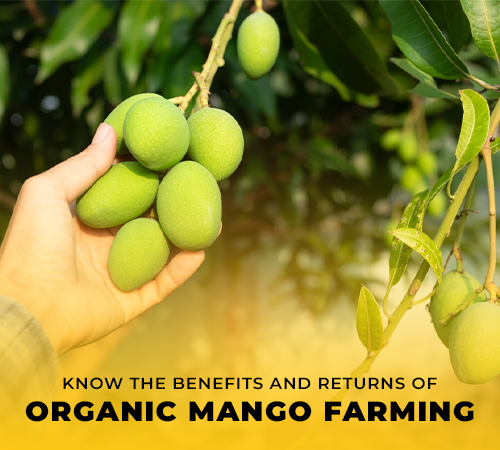
Health Benefits: Organic farming eschews the use of synthetic pesticides, fertilizers, and genetically modified organisms (GMOs). As a result, organic produce, including mangoes, tends to be higher in essential nutrients and free from harmful chemical residues, thus promoting better health for consumers.
Environmental Sustainability: Organic farming practices prioritize soil health, biodiversity conservation, and water management. By avoiding the use of chemical inputs, organic farmers reduce soil erosion, preserve water quality, and support beneficial insects and wildlife, fostering a more resilient and sustainable ecosystem.
Improved Soil Fertility: Organic farming emphasizes the use of natural fertilizers such as compost, manure, and crop rotation to enhance soil fertility and structure. Over time, this leads to healthier soils capable of sustaining long-term crop productivity without the need for synthetic inputs.
Reduced Carbon Footprint: Organic farming typically involves lower energy consumption and carbon emissions compared to conventional agriculture. By minimizing reliance on fossil fuel-based inputs and adopting practices such as cover cropping and agroforestry, organic farms contribute to mitigating climate change and promoting carbon sequestration in soils.
Market Demand and Premium Prices: The growing consumer preference for organic products has created a lucrative market for organic mangoes and other produce. Farmers practicing organic agriculture often command premium prices for their crops, providing a significant economic incentive for transitioning to organic farming methods.
Investment Opportunities: Investing in organic mango farming presents diverse opportunities for individuals and entities looking to participate in the booming organic agriculture sector. One avenue for investment lies in acquiring agriculture mango farm land for sale in regions conducive to mango cultivation, such as tropical and subtropical areas. Investing in farmland provides a solid foundation for establishing organic mango farmland and tapping into the growing market demand for organic produce. Additionally, investing in infrastructure development, including irrigation systems, storage facilities, and access roads, is essential for optimizing farm productivity and profitability. Furthermore, investors can explore opportunities in organic certification and compliance, ensuring that their mangoes meet the stringent standards required to access premium organic markets. Market diversification into value-added products like mango puree and dried mangoes also presents lucrative investment prospects, offering additional revenue streams and market resilience.
Investing in organic mango farming presents diverse opportunities for individuals and entities looking to participate in the booming organic agriculture sector. One avenue for investment lies in acquiring agriculture mango farm land for sale in regions conducive to mango cultivation, such as tropical and subtropical areas. Investing in farmland provides a solid foundation for establishing organic mango farmland and tapping into the growing market demand for organic produce. Additionally, investing in infrastructure development, including irrigation systems, storage facilities, and access roads, is essential for optimizing farm productivity and profitability. Furthermore, investors can explore opportunities in organic certification and compliance, ensuring that their mangoes meet the stringent standards required to access premium organic markets. Market diversification into value-added products like mango puree and dried mangoes also presents lucrative investment prospects, offering additional revenue streams and market resilience.
Returns from Organic Farming: The returns on investment in organic mango farming can be substantial, driven by factors such as premium prices for organic produce, sustainable farming practices, and long-term market growth. By selling certified organic mangoes, farmers can command higher prices compared to conventionally grown counterparts, translating into increased profitability and revenue. Moreover, the adoption of organic farming practices promotes soil health, biodiversity, and ecosystem resilience, leading to higher yields and reduced input costs over time. As consumer demand for organic mangoes continues to surge globally, well-managed organic farms are well-positioned to capitalize on this trend and generate consistent returns. Furthermore, investing in value-added products and market diversification strategies enhances revenue streams and mitigates market risks, ensuring a more resilient and profitable business model. Overall, organic mango farming offers investors the potential for attractive returns while contributing to environmental stewardship and sustainable agriculture practices.
Effects on Nature: Organic mango farming exerts positive effects on nature through its emphasis on biodiversity conservation, soil health, and ecosystem resilience. By avoiding synthetic pesticides and fertilizers, organic farmers protect pollinators, beneficial insects, and soil microorganisms essential for crop pollination and nutrient cycling. Additionally, organic farming practices such as agroforestry, intercropping, and habitat preservation contribute to habitat restoration and wildlife conservation, fostering a more harmonious relationship between agriculture and nature. In conclusion, organic farming, particularly in the context of mango cultivation, offers a holistic approach to agriculture that prioritizes human health, environmental sustainability, and economic viability. By embracing organic principles and investing in organic mango farming ventures, farmers and investors can capitalize on the growing demand for organic produce while promoting ecological resilience and community well-being. With careful planning, prudent investment, and a commitment to stewardship, organic mango farming holds the promise of a fruitful and sustainable future for generations to come.
